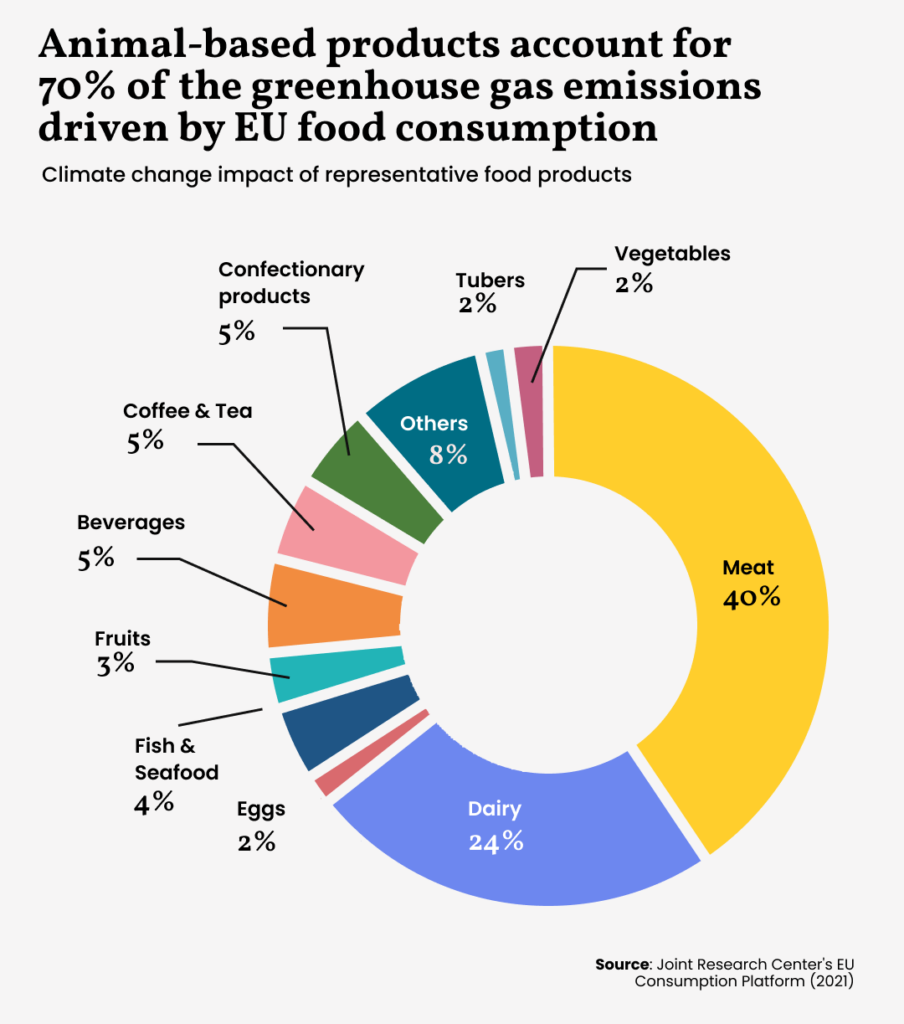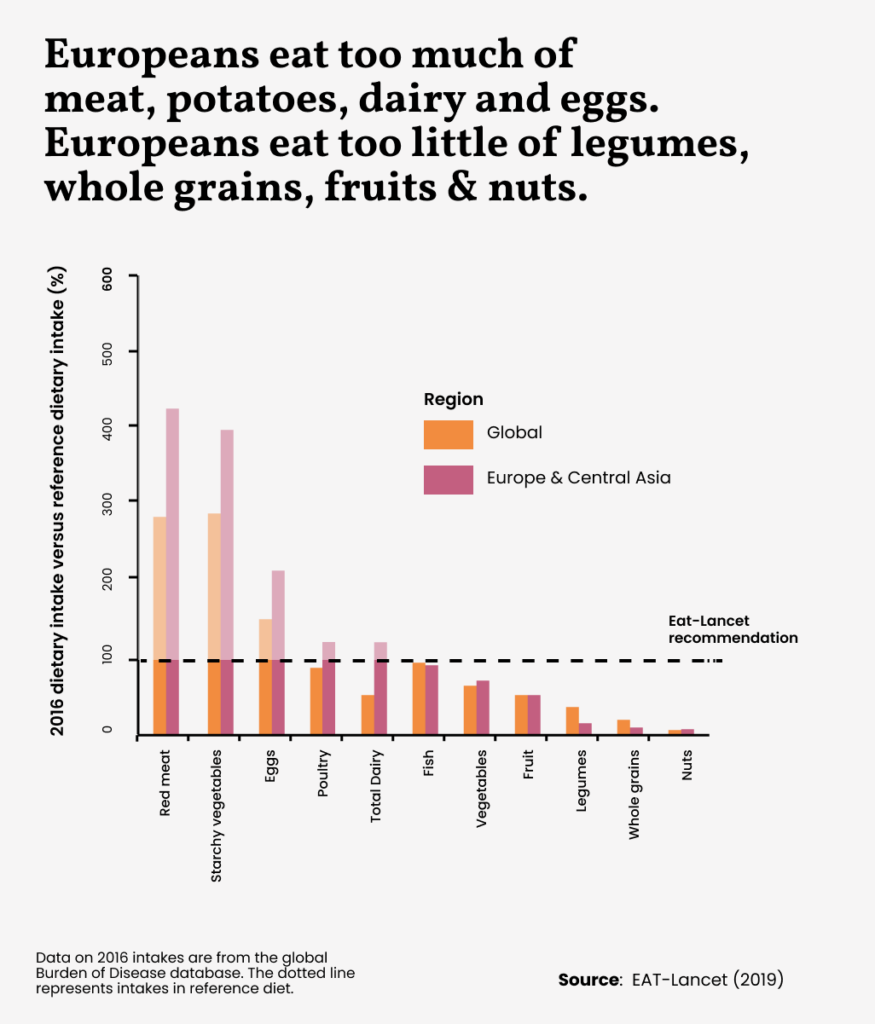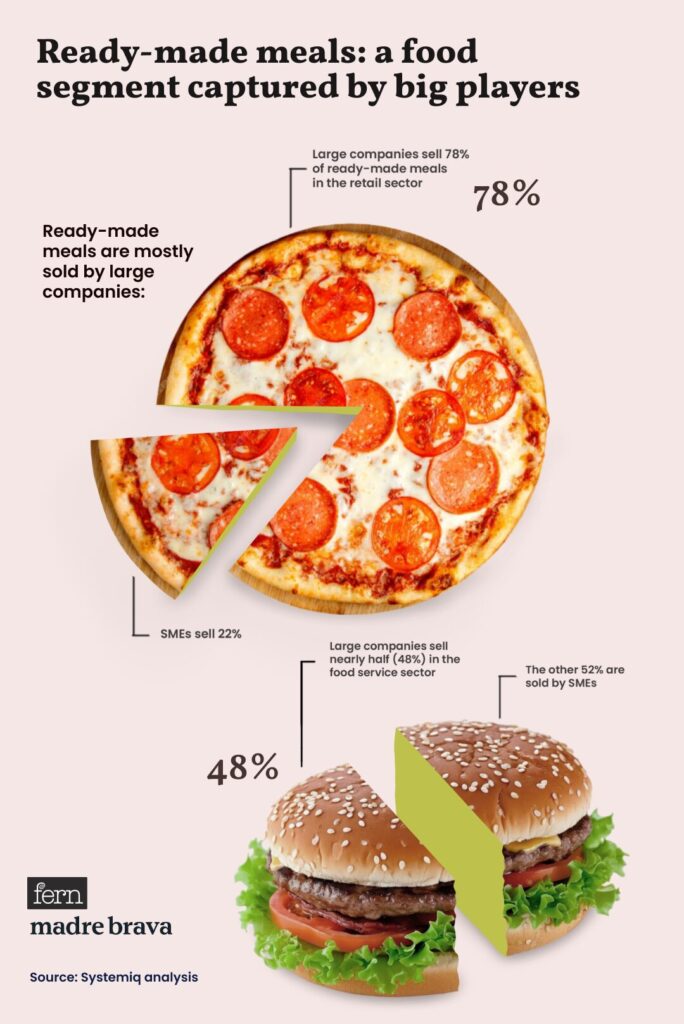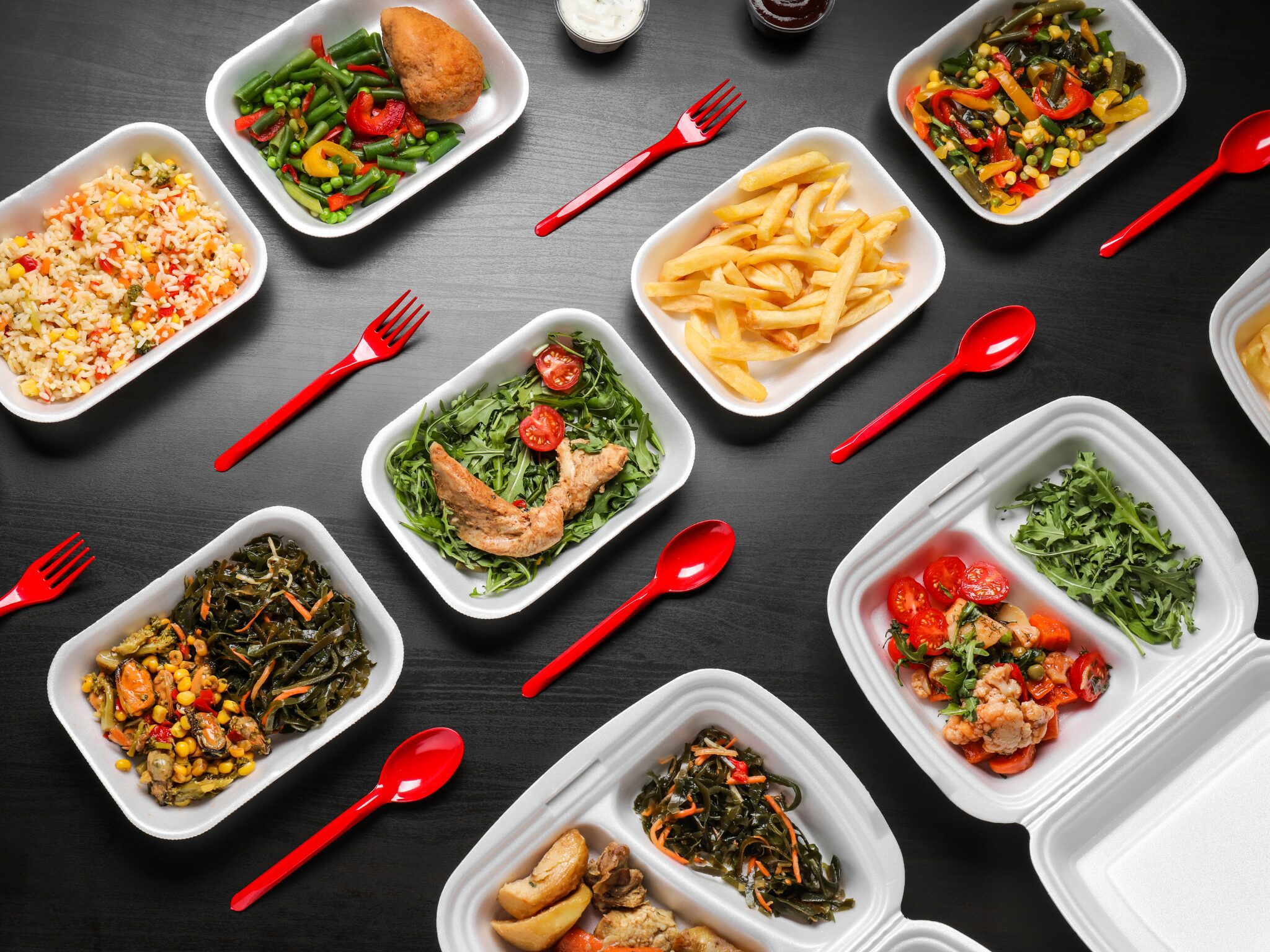Aligning Ready Meals with Health Guidelines Could Save the EU Tons of Emissions – and Money
5 Mins Read
Healthier ready-to-eat meals in line with international guidelines could bring huge climate benefits and cost savings to the EU, according to a new report.
Less meat, dairy, fish and salt, and more produce, whole grains and legumes in ready meals can mean a healthier, more sustainable and wallet-happy EU population, suggests a new study by consultancy Systemiq for a group of 10 consumer and environmental organisations.
The report reveals that if ready meals in the EU match the established health standards of bodies like the WHO or the EAT-Lancet Commission, the region could reduce its GHG emissions by around 48 million tonnes annually – that’s about the same as removing 38 million new cars from the road. Additionally, it would make food production cheaper, saving consumers €2.8B every year – and that’s before you consider the health effects themselves, with these pre-prepared meals able to tackle diet-linked diseases like cancer, cardiovascular disease, liver disease and type 2 diabetes.
“Making ready-made meals healthier and more sustainable is a no-regret policy. Healthier and more sustainable choices don’t have to cost the earth, quite the opposite in this case,” said Eduardo Montero Mansilla of the Spanish Consumers and Users’ Federation CECU.
“As the popularity of ready-made meals soars, this timely finding shows a win-win-win solution, where we can improve the health of people and the planet at affordable prices. This becomes even more crucial as Europe navigates a cost-of-living crisis,” he added.
Ready meals are unsustainable in more ways than one

The report highlights how food is the top driver of consumption-related climate change in the EU, accounting for 38% of these emissions. Meat and dairy have a much larger impact on the environment than plant-based foods, due to the former’s expansive use of land and water, links with deforestation, and higher greenhouse gas footprint. So it comes as no surprise that animal-derived foods make up 70% of the EU’s food consumption emissions.
Meat is responsible for 40% of this figure, while dairy contributes to another quarter (24%). Seafood emits 4% of the total, and eggs 2%. In contrast, fruits, vegetables and tubers account for a combined 7% of these emissions, while coffee, tea and other beverages make up another 10%.
Currently, ready meals account for over a sixth (17%) of the EU’s calorie intake, and this share has increased over time – in the last 15 years, consumers in Italy, Germany and Spain have been eating 40-60% more of these. But the report says this is leading to “impending health crises”, and governments need to do something about it fast.
It’s because these meals have way too much salt, sugar, fat, calories and animal proteins than the WHO or the EAT-Lancet Commission recommend. For example, they contain three times as much salt as advised by the former for a healthy diet, and four times more red meat than the latter’s planetary health diet guidelines. In fact, pre-prepared meals have twice as much red meat as the average consumption in the EU.
Apart from salt and red meat, people in the EU also overconsume sugar, fat, beef, pork, eggs, dairy, poultry and potatoes. On the other hand, they eat too little vegetables, fruits, whole grains and legumes. There is a significant cost to these eating patterns – each year, about a million deaths in the region are associated with unhealthy diets.

“We are currently living in a diet-related illnesses crisis. Our dietary habits shape our health, and therefore our future. It makes only sense that policymakers regulate the environments where we consume food to make it healthy and affordable by design,” said Alba Gil, policy manager of the European Public Health Alliance.
She added: “Legislation on ready-made meals is extremely powerful because it shows benefits on improving our health, caring about the planet, and potentially advancing equity for vulnerable populations, since they are often the target of unhealthy foods.”
Healthier meals are also cheaper
Expanding on the cost benefits of making healthier ready meals, the study outlines that big corporations largely control the distribution of these products, with a 78% share of sales in the retail sector. This is more evenly split in the foodservice world, with large companies responsible for 48% of pre-prepared meals. The authors call on large supermarkets, catering companies and restaurant chains to adopt to health standards, arguing that these changes can be mandated without harming small- and medium-sized enterprises.
And there is evidence of consumer support for this – according to a 2023 poll, 75% of Europeans think big companies should ensure that the food they sell is sustainably produced. “Policymakers and big businesses hide behind the mantra of ‘consumer choice’ to avoid making food healthier and more sustainable,” noted Madre Brava managing director Nico Muzi.
“The reality is that many ingredients in ready-made meals are decided and chosen by very large supermarkets, fast food chains and catering companies. Regulating them could not only bring huge climate and health benefits, but also make healthier ready-to-eat meals cheaper and more accessible to people struggling to make ends meet,” he added.

The report shows that better-for-you meals would reduce ingredient costs significantly, as this would mean a rise in legume and vegetable content (which are usually cheaper) and a decrease in meat (which tends to be more expensive). It also serves as an incentive for consumers to shift their protein intake to be more plant-heavy, since meat-eating could mean higher grocery bills if these health policies are implemented.
What would these measures look like? Ready meals need to be retuned to contain half as many refined grains and two-thirds less meat on average, alongside significantly more legumes. Laws regulating these products would have two legal bases in the EU, which allow it to preserve and improve the quality of the environment and human health, and adopt measures to establish the functioning of the internal market.
“These compelling findings underline the urgency for the European Commission to impose minimum sustainability and health requirements on restaurant chains and large food retailers for the ready-made meals they sell,” said Julia Christian, forests and agriculture campaigner at climate non-profit Fern. “In the current context of farmers’ protests and cost-of-living increases, this approach makes more sense than ever: it places responsibility for addressing environmental and public health problems on large corporations, rather than farmers or consumers.”




